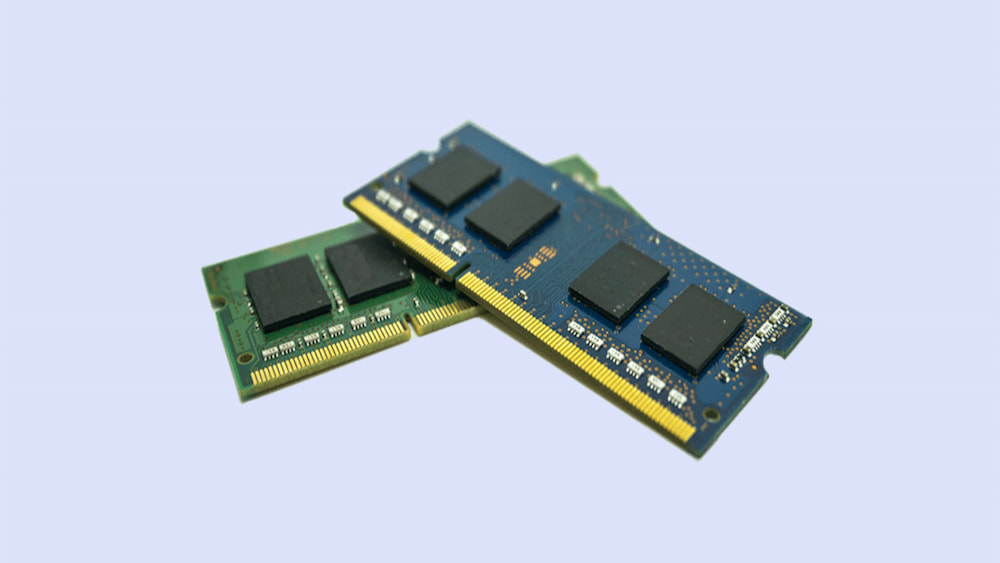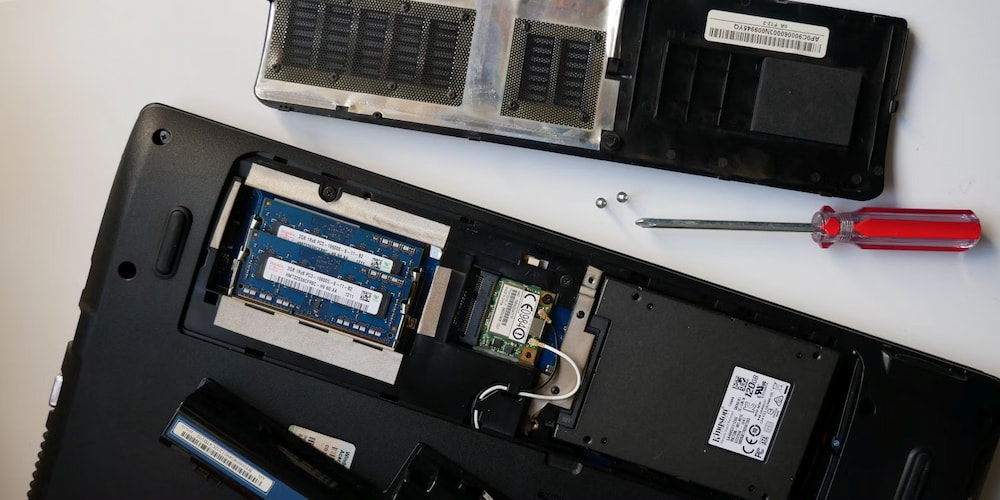
Adding RAM or a new SSD to your computer is a great way to boost performance. Either choice has benefits and can start a computer that was previously running slowly running more quickly.
Choosing these upgrades can be difficult because of how similar they are. A type of storage is an SSD, and a type of memory is RAM. It’s simple to misjudge which one will have the greatest impact as a result.
Please continue reading as I will provide you with more information that is more detailed.
Table of Contents
RAM Vs SSD
As two distinct computer parts, RAM and SSD are typically not comparable. However, some users are torn between upgrading to SSD or RAM for gaming when it comes to computer performance. When choosing an upgrade, users frequently give speed and cost a lot of thought.
Learn more about the price and speed differences between RAM and SSD by reading on.
RAM Vs SSD Speed
The speed of your computer can be increased by RAM and SSD. But in reality, RAM is much faster than an SSD.
An SSD can theoretically transfer data at a rate of up to 6Gbps, or 750 MB/s, when using the SATA interface. Additionally, a relatively quick SSD might reach a write speed of 456 MB/s in real-world usage. In contrast, the PC number determines the RAM’s speed, and a PC3-12800 memory module can transfer data at a rate of 12,800 MB/s.
RAM Vs SSD Price
RAM costs much more than an SSD per GB of storage space.
A Samsung 1TB SSD, for instance, costs about $230 on Amazon in terms of common consumer SSDs. Of course, SSD costs vary depending on brands, interfaces, and other elements, but they are frequently less than $1 per GB.
The common price ranges for different RAM sizes are listed below:
- 1GB stick: about $10 or less
- 2GB stick: about $10 – 20
- 4GB stick: about $20 – 45
- 8GB stick/kit: about $40 – 90
- 16GB stick/kit: about $70 – 100+ for DDR3, or about $80 – 150+ for DDR4
Since RAM and SSD have become less expensive in recent years, most users can now afford to upgrade to either. According to a recent report, prices may soon fall due to an abundance of goods and weak demand. See more about Intel SSD 660p 2TB Review
RAM Review
Random-access memory, or RAM as it is commonly known, is a typical type of computer memory. One of the most crucial parts of your computer that can be read and modified in any order is this one. Data that is saved in various locations throughout the memory can be read or written using a random-access memory device in almost the same amount of time.
Hard drives house the operating system, applications, and personal data, while RAM temporarily stores data that is currently in use so that the device’s processor can access it quickly. Data flowing to or from the computer’s hard drive passes through the RAM, which is almost directly connected to the CPU.
Generally speaking, RAM enables quick read and write access to your computer’s storage devices. But because RAM is volatile, it cannot be used to directly store different types of data. In other words, information is kept in RAM as long as the computer is running, but when the computer is turned off, the data is lost.
SSD Review
A new generation of computer storage device known as an SSD, or solid-state drive, uses integrated circuit assemblies as memory to permanently store data. SSDs typically use NAND-based flash memory, a non-volatile form of computer memory storage, as opposed to conventional mechanical hard drives like HDDs and floppy disks.
Since an SSD offers more advantages than the widely used HDDs these days, more and more users are willing to select one for their devices. Some advantages of SSDs are listed below:
- Faster data write/read speed. Standard SSDs typically have sequential data read and write speeds of about 550 MB/s and 520 MB/s, respectively. Additionally, different interfaces can affect SSD speed differently.
- Shorter boot time. SSDs can significantly reduce the time it takes to boot up and load files because they can access data more quickly. An SSD typically takes 10 to 13 seconds to boot up.
- Better durability. SSDs can operate in a variety of demanding circumstances and are more resilient to physical shock.
- Lighter weight. Generally speaking, SSDs are more portable and lighter than HDDs, making them better for constant travel.
- Less noise. SSDs operate quietly and generate less heat since they have no moving parts.
- Less power consumption. The longer battery life in laptops and tablets is a result of SSDs’ lower power requirements.
- Less data fragmentation. SSDs store data in larger, more tightly spaced memory sections compared to HDDs, which lessens data fragmentation.

How Does More RAM Enhance Computer Performance?
The amount of memory that running progRAMs can access is increased by adding RAM to a computer, which boosts performance.
Run Multiple ProgRAMs Faster
When you attempt to run multiple progRAMs simultaneously on your computer, a RAM shortage becomes apparent. There simply isn’t enough RAM in this situation to accommodate all of the different progRAMs, each of which has specific RAM needs. All progRAMs may run slower than usual or crash as a result of this.
You can avoid this from happening and run as many progRAMs as you like at once without performance being affected by adding RAM to a computer.
Run Large ProgRAMs Faster
RAM is necessary for running specific resource-intensive progRAMs. This includes video games and photo and video editing software. In order to play games, you need a lot of RAM. Some games may not even start if there is not enough RAM. The smoothness and responsiveness of games can also be improved with more RAM.
What Are The Benefits Of An SSD For Pc Performance?
There is no way to run more progRAMs at once with an SSD. But there will be other ways that it improves performance.
Improve Boot Times
The difference in boot time when an SSD replaces an HDD is evident right away. A computer needs to load its operating system and various system files before it can start up. A computer can boot up in as little as ten seconds by keeping these files on an SSD.
Load Games Faster
Putting an SSD in won’t help if your PC’s lack of RAM is the cause of its inability to run games properly. But for gaming, an SSD is useful. Maps and cut scenes will both load considerably quicker due to faster read speeds.
Going For More RAM
Since each app you open uses a different amount of RAM depending on the app you’re running, the RAM primarily helps you run apps on your laptop smoothly. As a result, the more apps you run, the more RAM they consume. Some software can use up to 32GB of RAM, and running two instances of that would use even more. You’ll need to choose a little bit more RAM than what the software calls for because it depends on the task your laptop is carrying out. Your browsing experience will undoubtedly improve thanks to the quicker loading of web pages and flash content. You can check your task manager to see if you’re low on memory; if so, a RAM upgrade will be helpful since functionality now takes precedence over speed.
When you are running several progRAMs, you will notice an increase in RAM’s impact. You can switch between the active applications more quickly and glitch-free with more RAM. Once the RAM is used up, the progRAM proceeds to be written in the pagefile on the hard drive which is much slower. By doing so, you’re likely to experience system lags as you move between progRAMs. An SSD makes sense in addition to a RAM upgrade if you’re having this problem. However, compared to switching to an SSD, upgrading your laptop’s RAM has little impact on specific tasks.
SSD Upgrade
The read/write speed would significantly increase if you switched to an SSD, which would result in faster boot times and snappier file opening. As a result, playing a 4K video will take less time, and opening any other large files will go much faster than it did when an HDD was installed. An SSD in charge will speed up progRAM performance, especially for progRAMs that draw a lot of data. In addition, compared to when using a hard disk bootable drive, your laptop will boot up incredibly quickly. Generally speaking, replacing the RAM with an SSD will be preferable to doing so. With an SSD installed, your battery will even last longer because it uses less power and is quieter.
Generally speaking, switching to an SSD would result in the greatest performance boost if you weren’t in urgent need of additional RAM, whether it was because of a particular progRAM requirement or you were simply running out of memory. At the end of the day, choosing to do either of the two is the choice with the greatest advantages. The SSD is more advantageous in that regard.
Which Is Better For You: SSD Vs. RAM?
RAM and an SSD are both possible fixes if your computer isn’t fast enough. Your PC’s specifications will determine which one is best for it.
RAM is typically a better choice. Running speeds are more heavily influenced by a computer’s RAM capacity overall. However, there are some exceptions.
More RAM won’t have a significant impact if your computer already has plenty of RAM. 8GB of Most uses only require a small amount of RAM, so having more than 16GB is usually not necessary.
Replacing the RAM won’t help if your hard drive is making your computer sluggish. Actually, an SSD would be a better choice in either of these circumstances.
RAM Vs SSD FAQs
Is An SSD Upgrade Worthwhile?
In most situations, it is worthwhile to switch from your conventional hard disk drive to a chip-based SSD because SSD can significantly improve PC performance. However, upgrading to SSD might not be the best option if you place a higher value on storage than speed. because HDDs with the same capacities are frequently less expensive than SSDs. .
Is 8 GB RAM Sufficient For Gaming?
In actuality, 8GB RAM is sufficient for the majority of games to run smoothly. It is acceptable to spend more than 8GB RAM if you want a better gaming experience.
Is Having More RAM Or Storage Better?
You don’t need more RAM if your existing supply can accommodate the data that is currently being worked on. The massive stored data that you aren’t using right now is what you need to take care of. Therefore, having more storage is always preferable. Visit this post Memory vs. for more details. How much storage do you need and what types are there?
Should I Upgrade My RAM Or SSD For Gaming?
Depending on your circumstances. There’s no need to upgrade RAM if your RAM capacity already suffices and meets the needs of your games. In this situation, switching to an SSD might greatly improve your gaming experience.
Conclusion
A PC’s performance can be significantly enhanced by adding RAM or an SSD. The best choice for you will depend on the shortcomings of your current PC and the performance areas you wish to enhance.
The most effective choice is typically RAM. It can expand the range of progRAMs you can use and the number of them you can run at once. However, only when your computer’s RAM is low does this make sense.
More won’t make much of a difference if you already have a lot. Then, because it provides additional advantages like quicker boot times, an SSD should be taken into account.
Thank you for reading.
Read about








